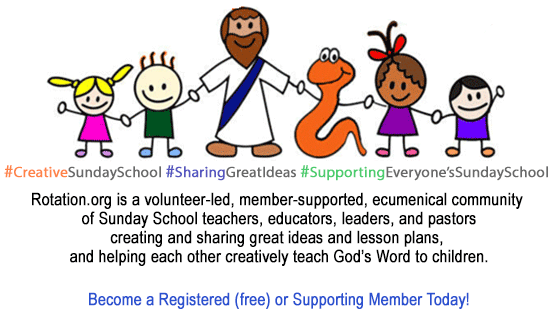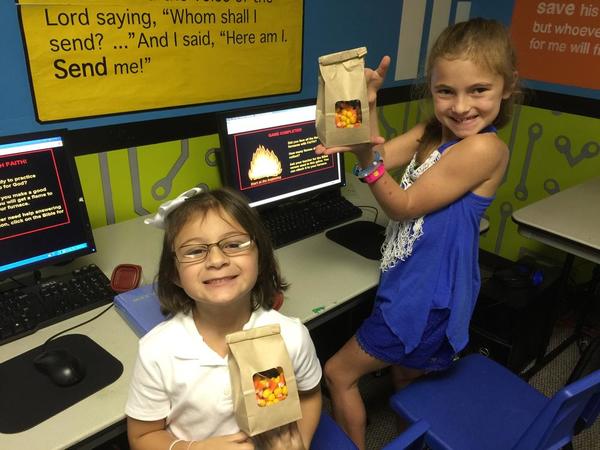Originally posted by member Rhonda:
Games Ideas - 4 games about "Integrity"
For older kids:
Icebreaker: We had name tags of well-known people for each of the students. Half of the names were people of integrity, like the apostle Paul, Billy Graham, Martin Luther King, Jr. and the pastor. The other half were people who obviously lacked integrity. (i.e. Judas Iscariot, Adolph Hitler, etc.)
To begin, we placed a name tag on the back of each of the kids, without letting them see the name. They had to ask the other kids yes or no questions to figure out the name on their name tag. They were allowed to ask questions involving character or occupation. They were not allowed to ask questions about appearance.
Ruled Out: We had a list of questions and an answer sheet prepared beforehand. To begin this activity choose two students, bringing them to the front of the room. Be specific about why you chose them. They might have been quiet, wearing blue, had brown eyes, white shoes, etc. Ask them a question from your list. The first to raise their hand gets to answer. If answering correctly, award a small prize. If answered incorrectly, give the other student a chance.
Now, ask for two more volunteers. This time, however, you will change all the rules. For example: select someone who wasn't being quiet, etc. Allow the second person who raises his/her hand to answer first; give a prize to the one who answered incorrectly. etc.
Contiue playing the game and changing the rules each time. Eventually there will probably be protest from the students. You can continue as long as time allows (or the "crowd" doesn't rebel.) Have a decussion about how it felt for the rules to keep changing. Was it frustrating? Why? .............
Puzzles: Bring simple puzzles, but make sure one piece is missing from each puzzle. When the students arrive, give each student a bag of pieces. All the pieces in each bag must belong to the same puzzle. Each student then has to have to find others how have more pieces to their puzzle so the group can put the puzzle together.
Tell them the first group to finish the puzzle wins a prize. However, no one will be able to finish because of the one missing piece. It is a nice treat to provide a small treat for everyone anyway.
Application: Why couldn't you finish the puzzle? Only one piece was missing. It was a small piece, but made a big difference, didn't it? What would happen if you were building a house but decided to use fewer nails than you needed? etc......
Measure Challenge: (LOVE this one) Before class make some paper rulers. (I used the copy machine on different size sittings--enlarge and reduce--- for this one.) Each ruler should be a different length, none of them being exactly 12 inches long. Each student will get a ruler, pencil and a "challenge sheet." The challenge sheet will have a list of items the students are supposed to measure. A table can be available with several items from the list. (paper plate, box, statue, paper clip, pencil, block, etc.) You can also include items in the room such as the light switch, chair legs, etc.
The students each measure and record their findings on the challenge sheet. When all have completed, compare sheets by asking for the answer to number 1. Of course all answers will be different. Ask for two volunteers to challenge each other by measuring a different object. Then explain that both are incorrect because their standard of measurement was incorrect. Conclude by using a standard 12-inch ruler to find the correct measurement.
Application: Talk about standards of measurement (miles, liters, gallons, etc.) If we are going to live with integrity we must have a standard by which to live. Begin discussion about the Bible being our standard. (see II Timothy 3:16)




